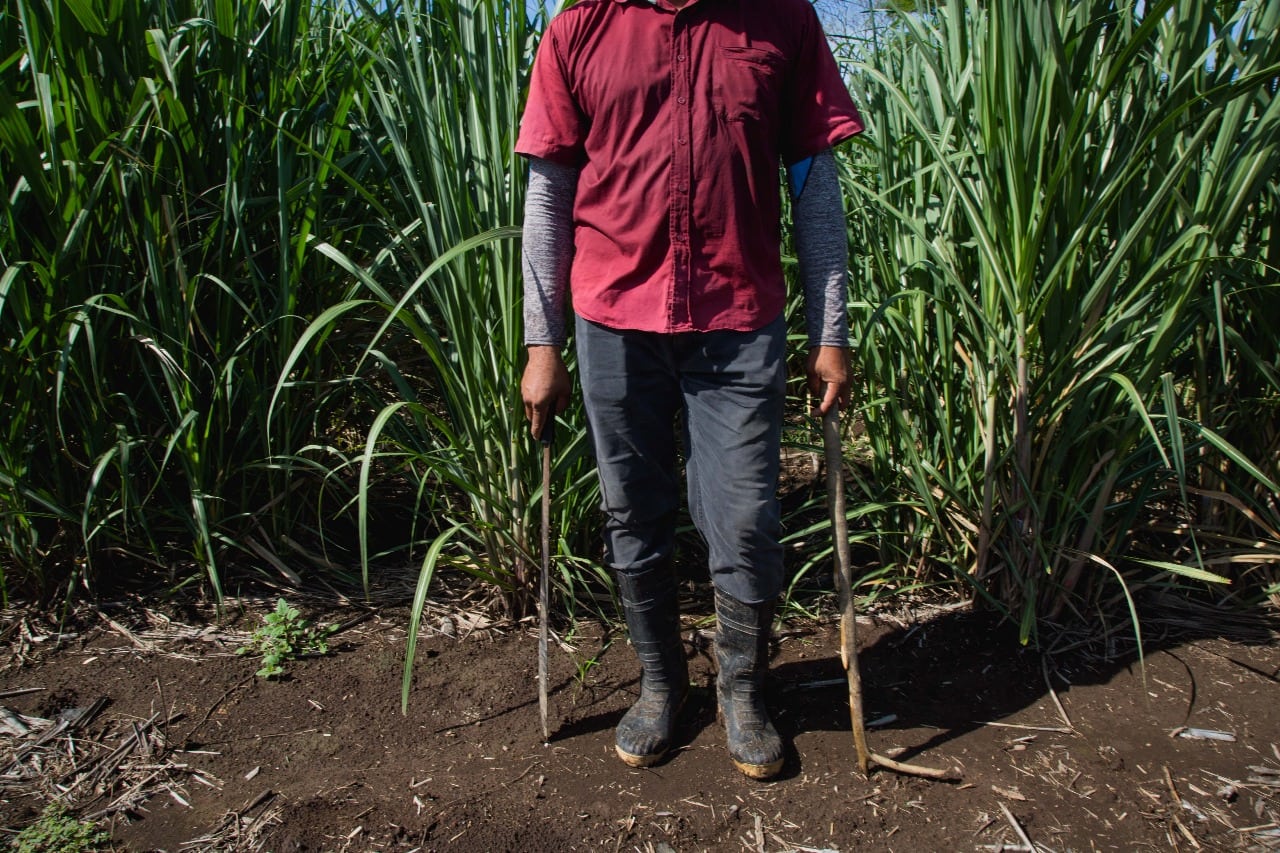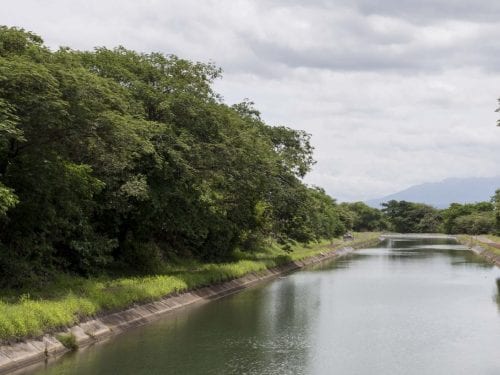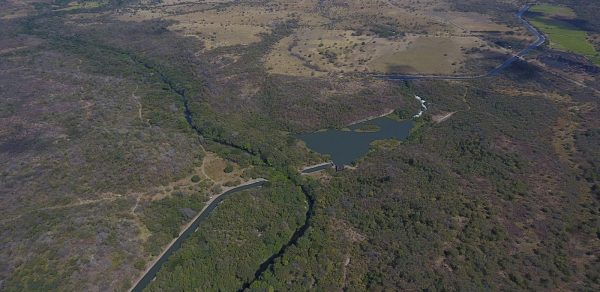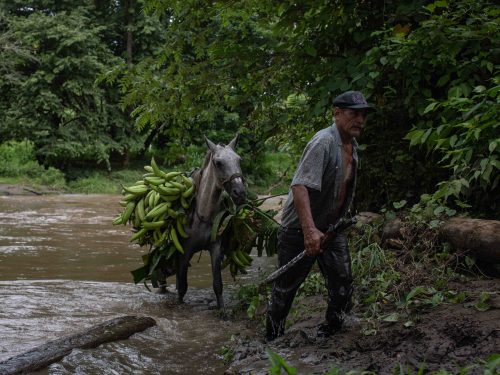
Jennifer Crowe, researcher for the National University’s regional Institute for the Study of Toxic Substances, has explored the relationship between the heat that Guanacaste sugar cane harvesters endure and the potential for suffering from chronic kidney disease (CKD). In this interview, she speaks about the potential for Costa Rica to recognize CKD as a work-related health risk and the importance of continuing scientific studies. This is an extract of the conversation.
Is there interest in showing the causal link between chronic kidney disease and the work that farmers do in scientific circles?
Ever since I’ve been involved, the understanding is that we have a real and serious problem. Six years ago, the disease wasn’t recognized in Costa Rica or in other countries in Central America. Now there is a lot of interest in providing a response. The response hasn’t been enough, but I think the movement is positive.
But the life that these people have hasn’t changed……
In Costa Rica, at least there is a national decree for the place of work and a series of actions implemented by the public health system that didn’t exist three or four years ago. But, you’re right the patients and their families continue to suffer in an unjustifiable way. We have to recognize that there have been advances and keep working because the problem ranks way above other health problems in the country.
The health ministry tells me that more conclusive studies are necessary. That is mentioned in the summary of the nephrology meeting that you were part of in 2015. It also mentions that these studies are costly. Who should finance them?
That’s a really good question. It’s important to say that there are studies with large amounts of international financing in different parts of Central America, and even still we aren’t certain about the causalities of the disease. We can’t just say ok, lets plan from a study for the next five years and wait to see if we get a response. Personally, I don’t think we are going to get results that way, but I know that at some point we are going to understand the causes of this disease.
As a country we have a responsibility to other countries. In terms of financing, it’s a big question. I would count on international research. Until then, what the countries can do is do studies with similar methodologies in order to compare the results among countries.
With the studies that currently exist, are the decisions made by the state of Costa Rica the ones that were recommended, or the ones that researchers were hoping for?
I think Costa Rica has been a pioneer in taking action. And it’s difficult. I don’t want to say they’re sufficient, but with what they have had and what is in the range of possibilities and considering inter-institutional coordination, I think that Costa Rica’s effort is admirable. But we can’t stop there.
One of the most common criticisms of people with CKD is that the National Insurance Institute (INS) doesn’t compensate them because it’s not recognized as a work-related risk, like it is in Nicaragua. Is this evidence enough for insurance companies to recognize it as a work-related risk?
The process for a country to declare a disease work-related is very complicated. While the evidence may be really clear, Costa Rica has to issue a declaration before an institution can resolve it. Costa Rica and the patients in Costa Rica face a complicated situation, they are in….
In limbo?
There is no clarity about who is responsible from the institutional point of view, according to the processes that exist.
You tell me that the state has been a leader, but since when?
When people from the communities started to say that we have a problem, the understanding that there was an epidemic in the country was slow. The truth is that it was slow. Once it happened, there was a moment in which the scientific community made a statement about the issue, as did Comisca and the WHO through the Pan-American Health Organization, encouraging member countries to take action. You have to take into account that any government of any country has a ton of issues. Dengue, malaria, water, AIDS and they have to prioritize.
One thing is what scientists can demonstrate about CKD and work, and another is the work itself, the working conditions. Can you tell me a little about these conditions?
During my first studies what I noticed is that they are clearly exposed to thermal stress for the large part of their work days. That on its own is a risk for death because of the possibility of heat stroke. It’s a medical emergency. It’s serious if they don’t receive medical attention. So the exposure to the heat and the lack of water, rest and access to shade adds to the risk of suffering CKD if we believe it is related to working conditions. Without a doubt, they deserve greater protection during their work days. But what I saw was before the thermal stress regulations and I haven’t gone back to see where we did the first study, but I have seen examples in different sectors. In some areas, I don’t see much improvement, but I have seen examples where you can see the interest of management in improving conditions.
The problems is that they don’t necessarily work for a company, but are contractors and work and are paid by the amount of sugar cane they cut. For people who live in poverty, it’s not difficult to foresee that they would prefer to keep working rather than resting.
That’s a very important point. In scientific circles, it is argued that the human body doesn’t exceed its physiological limits of metabolic load, but it has been demonstrated that people in extreme situations (in wars or elite athletes, for example) are able to do it. The situation of a person needing to put food on the table and extreme poverty could be something that makes them exceed their bodies signals to rest. They have a stimulus or a need that ranks above the signals that the body is sending to stop.
With the evidence that exists right now, what corrective measures does the scientific community expect to happen in the coming years related to this kidney disease and heat?
It’s important to follow up on the technical regulation that we have and see if there are improvements that we can make and improve oversight of that, see if it is really being implemented and how we can improve it in different sectors and different companies. Another thing is to keep advancing on working conditions. If there is a toxin, whether it be agrochemicals or something else we haven’t identified, and its work-related, the way to reduce the risk is the same as with the heat: try to seek protection for this person in their workplace, minimize risks, exposure to heat, agrochemicals and any other toxin that could exist in their workplace, and promote fair conditions in their work environment and fair pay.
About the heat, I would say that we have to understand that we already have a risk, but in the coming years or decades it is going to get worse because of climate change. We have to be clear in that anything that we are going to do now, we are going to have to improve it because the conditions are getting worse and they are going to get even worse.
***
This special investigation was done with Semanario Universidad over the course of two years. You can find the published report in this newspaper by clicking on the this link.







Comments